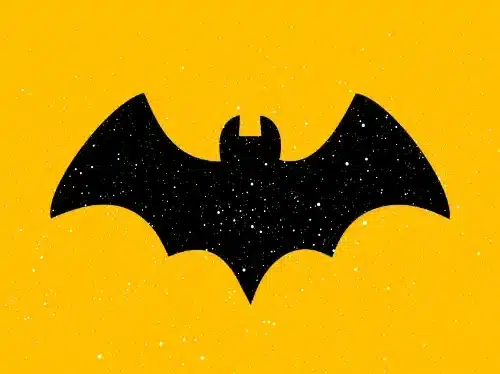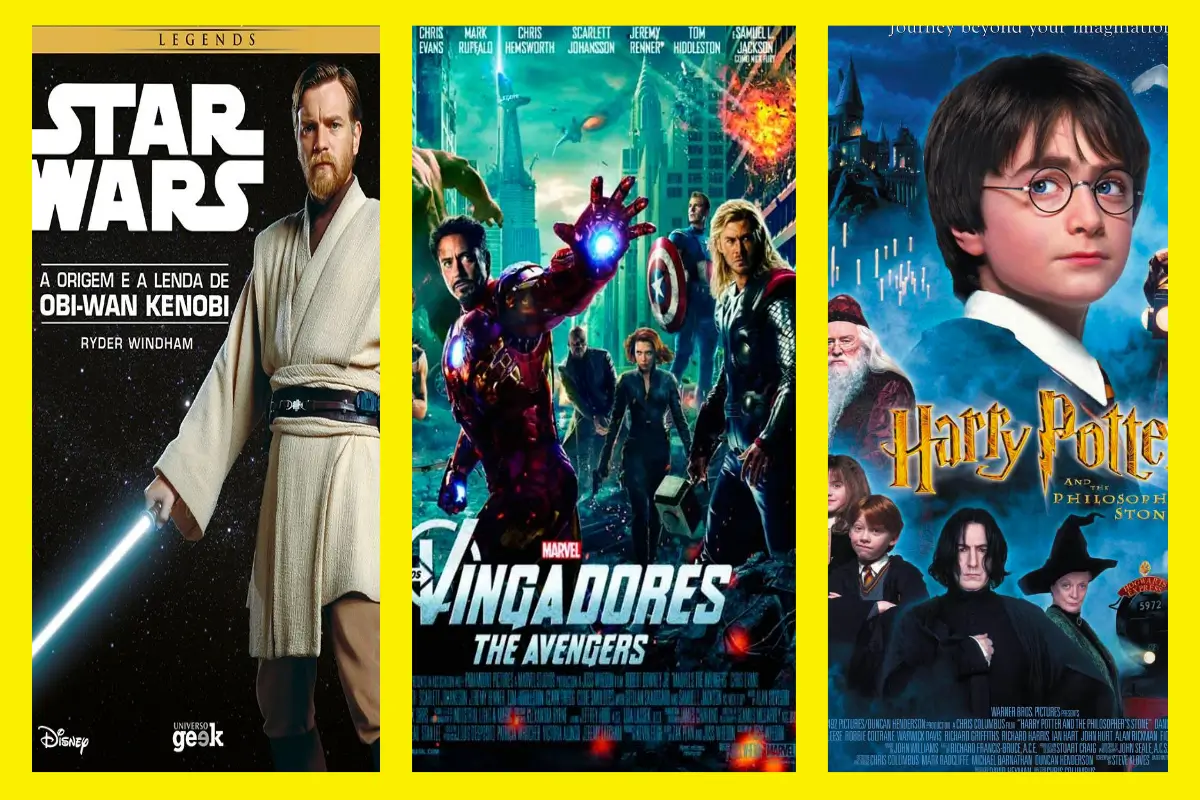Why Movie Franchises Are the Cornerstone of Modern Cinema
Cinema has evolved into more than just entertainment—it’s a cultural touchstone that brings people together.
Over the decades, few elements have shaped the movie industry as profoundly as franchises.
These larger-than-life sagas captivate audiences by delivering epic stories, unforgettable characters, and expansive worlds that transcend the screen.
Franchises don’t just entertain—they create shared cultural moments.
Think about the midnight premieres, the heated debates over plot twists, or the collective anticipation of a new trailer.
From the breathtaking battles of Star Wars to the intricate timelines of the Marvel Cinematic Universe, these iconic series redefine storytelling by inviting us to immerse ourselves in their universes.
In this article, we’ll explore the top 10 movie franchises that defined cinema, diving into how they revolutionized filmmaking, shaped genres, and became cultural phenomena.
Whether you’re a fan of superheroes, wizards, or intergalactic rebels, this list has something for every movie lover.
1. The Rise of Movie Franchises: A Game-Changer in Cinema History
What Defines a Movie Franchise?
At its core, a movie franchise is more than just a series of sequels—it’s a cohesive narrative universe that extends beyond the original story.
It includes recurring characters, interconnected plots, and often a unique world that fans can revisit across multiple films.
Successful franchises, like Star Wars or the James Bond series, go beyond movies, expanding into merchandise, spin-offs, and other media.
The Pioneers of Movie Franchises
Some of the earliest examples of blockbuster franchises set the stage for how the industry works today.
James Bond, with its suave spy missions and iconic gadgets, began captivating audiences in the 1960s and continues to thrive after six decades.
Then came Star Wars in 1977, which revolutionized the industry by blending groundbreaking special effects with an unforgettable story of rebellion and redemption.
Both franchises proved that cinematic worlds could be profitable and enduring.
Why Do Franchises Dominate the Box Office?
The reasons behind the unstoppable success of franchises are multifaceted.
First, they attract massive box office numbers, often breaking records with each new installment.
This financial dominance allows studios to invest heavily in production quality, creating stunning visuals and engaging narratives that draw audiences back for more.
Second, fan loyalty plays a crucial role. Once a franchise establishes a devoted fanbase, those fans become emotionally invested in the characters and storylines.
This connection leads to repeat viewings, midnight premieres, and extensive online discussions that keep the franchise alive between releases.
Finally, the expansion into merchandise, theme parks, and spin-offs turns franchises into multi-dimensional experiences.
Think of the Harry Potter universe—fans don’t just watch the movies; they buy wands, visit Hogwarts-themed attractions, and binge-read spin-off books like Fantastic Beasts.
In short, franchises thrive because they offer more than just a movie; they deliver a full-fledged cultural phenomenon that keeps fans engaged for years.
Read also: Top 50 best comedy movies of all time that will make you laugh nonstop.
2. Top 10 Movie Franchises That Defined Cinema
2.1. Star Wars: The Force That Changed Storytelling
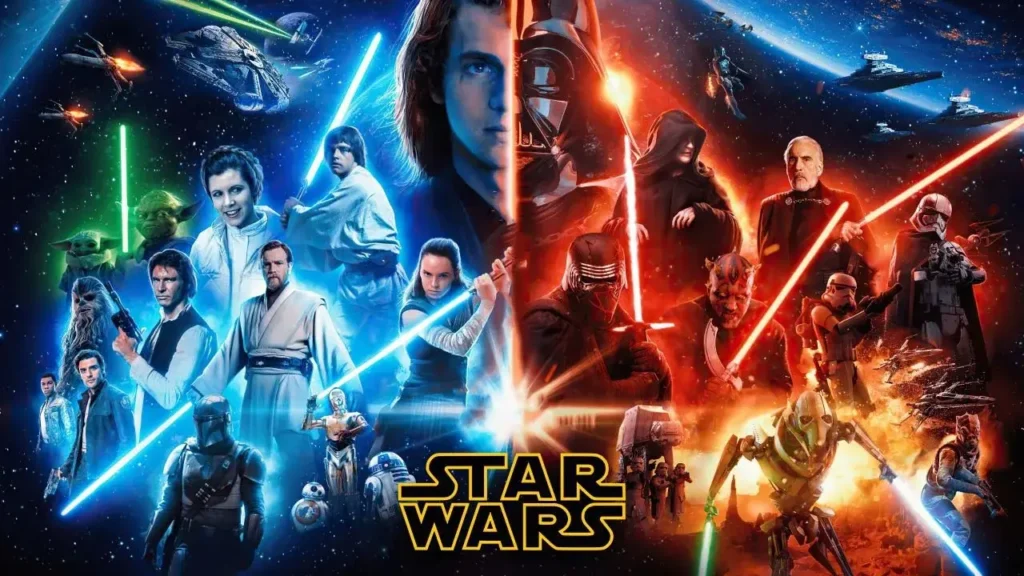
When discussing franchises that shaped the landscape of modern cinema, Star Wars inevitably tops the list.
George Lucas’s epic space opera, which premiered in 1977, didn’t just tell a story—it created an entire galaxy far, far away that continues to captivate audiences to this day.
A Brief History of the Star Wars Franchise
The original Star Wars trilogy (Episodes IV-VI) introduced audiences to unforgettable characters like Luke Skywalker, Princess Leia, and Darth Vader, cementing itself as a cultural cornerstone.
The prequel trilogy (Episodes I-III) expanded the lore, giving us a deeper look into the fall of the Jedi and the rise of the Empire.
In recent years, the sequel trilogy (Episodes VII-IX), along with spin-offs like Rogue One and The Mandalorian, have proven that the Star Wars universe is anything but stagnant.
Cultural and Technological Impact
One of the most revolutionary aspects of Star Wars was its groundbreaking use of special effects.
From the dazzling lightsaber battles to the realistic spacecrafts, Lucas’s team at Industrial Light & Magic (ILM) set a new standard for visual storytelling.
The franchise also redefined sound design with the iconic hum of a lightsaber and the eerie breathing of Darth Vader.
On a narrative level, Star Wars introduced the concept of the hero’s journey to mainstream cinema.
Inspired by Joseph Campbell’s The Hero with a Thousand Faces, Lucas crafted a timeless tale of good versus evil that resonated deeply with audiences around the world.
This formula has since become a blueprint for countless franchises, including The Matrix and Harry Potter.
Influence on Other Franchises
The success of Star Wars didn’t just inspire filmmakers; it redefined how studios approached franchise-building.
It showed the potential of creating expansive universes that go beyond the screen.
Marvel’s Cinematic Universe, with its interconnected storylines, owes much of its structure to the Star Wars model.
Even merchandising strategies, like action figures and themed LEGO sets, trace their roots back to the massive success of Star Wars collectibles.
In many ways, Star Wars is more than a movie franchise—it’s a global phenomenon.
It taught the industry that storytelling doesn’t end when the credits roll and proved that a single story could unite generations.
As Obi-Wan Kenobi would say, “The Force will be with you, always.”
2.2. Marvel Cinematic Universe (MCU): Building a Shared Universe
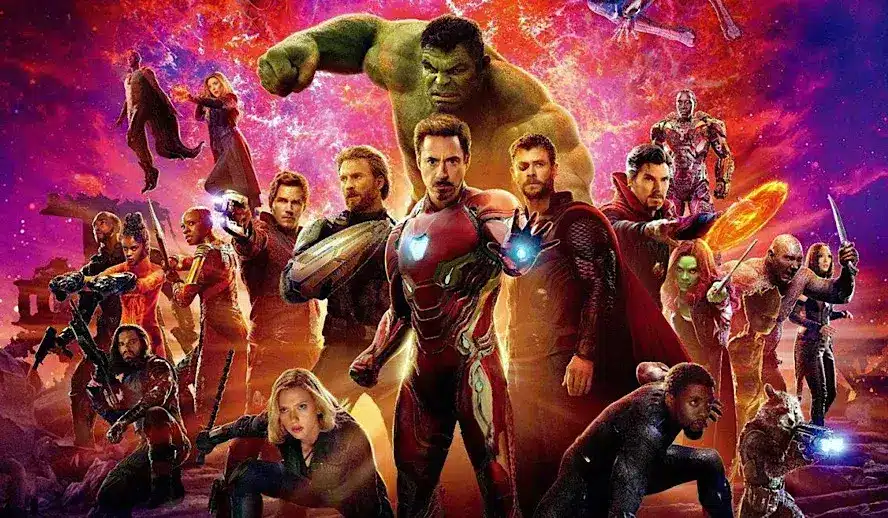
The Marvel Cinematic Universe (MCU) stands as one of the most influential and successful movie franchises in cinematic history.
It not only redefined superhero films but also introduced the concept of a fully connected cinematic universe that has become a gold standard in Hollywood.
Origins of the MCU and Its Box-Office Dominance
The MCU launched in 2008 with Iron Man, starring Robert Downey Jr. as Tony Stark.
This bold move by Marvel Studios set the stage for a series of interconnected films that would culminate in epic crossover events like The Avengers (2012) and Avengers: Endgame (2019).
Today, the MCU boasts over 30 films and multiple Disney+ series, collectively generating more than $29 billion at the box office.
Creating the Concept of a Connected Cinematic Universe
What makes the MCU truly groundbreaking is its storytelling model.
Each film stands alone but also contributes to a larger narrative arc that weaves through multiple phases.
This approach keeps audiences invested not just in individual characters but in the overarching story.
The introduction of post-credit scenes became a signature move, teasing future films and generating excitement among fans.
Impact on Superhero Films and Global Culture
The MCU’s influence extends far beyond the box office. It elevated superheroes from niche entertainment to mainstream cultural icons.
Characters like Iron Man, Captain America, and Black Panther became household names, inspiring countless merchandise, memes, and fan theories.
Moreover, films like Black Panther and Shang-Chi broke ground in terms of representation, reflecting Marvel’s commitment to diversity.
The MCU has also reshaped how studios approach franchise-building, inspiring competitors like the DC Extended Universe (DCEU) and Universal’s failed Dark Universe.
Its formula—compelling characters, interconnected storytelling, and fan engagement—continues to define modern blockbuster cinema.
2.3. The Lord of the Rings: From Page to Cinematic Glory
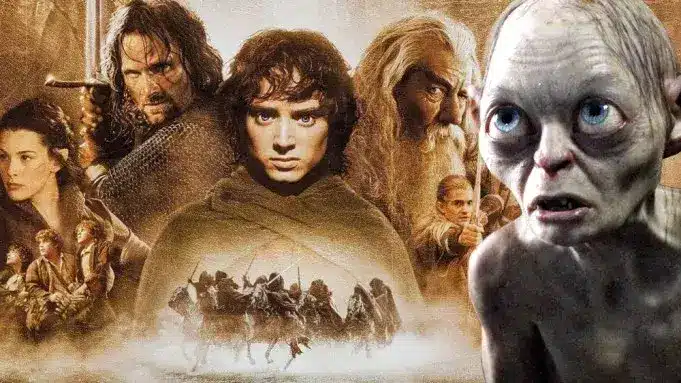
Few franchises have captured the magic of literature and translated it into cinematic brilliance like The Lord of the Rings.
Directed by Peter Jackson, this adaptation of J.R.R. Tolkien’s beloved novels became a landmark in fantasy filmmaking.
Adapting Tolkien’s Masterpiece
Bringing Middle-earth to life was no small feat. Jackson’s trilogy—The Fellowship of the Ring (2001), The Two Towers (2002), and The Return of the King (2003)—stayed remarkably true to Tolkien’s vision while making the dense source material accessible to modern audiences.
Filmed in the breathtaking landscapes of New Zealand, the franchise set new standards for practical effects, CGI, and immersive world-building.
Academy Awards Success and Cultural Impact
The Lord of the Rings trilogy achieved unprecedented critical acclaim, culminating in The Return of the King sweeping the Oscars with 11 wins, including Best Picture.
This success validated the fantasy genre as a serious contender in Hollywood, paving the way for franchises like Game of Thrones and Harry Potter.
Contribution to the Fantasy Genre
The trilogy’s detailed world-building, complex characters, and epic storytelling revitalized interest in high fantasy.
Iconic moments like Gandalf’s showdown with the Balrog and the climactic battle at Helm’s Deep have become ingrained in pop culture.
Additionally, the success of The Hobbit trilogy (2012-2014) reaffirmed the enduring appeal of Middle-earth.
2.4. Harry Potter: Magic on the Big Screen
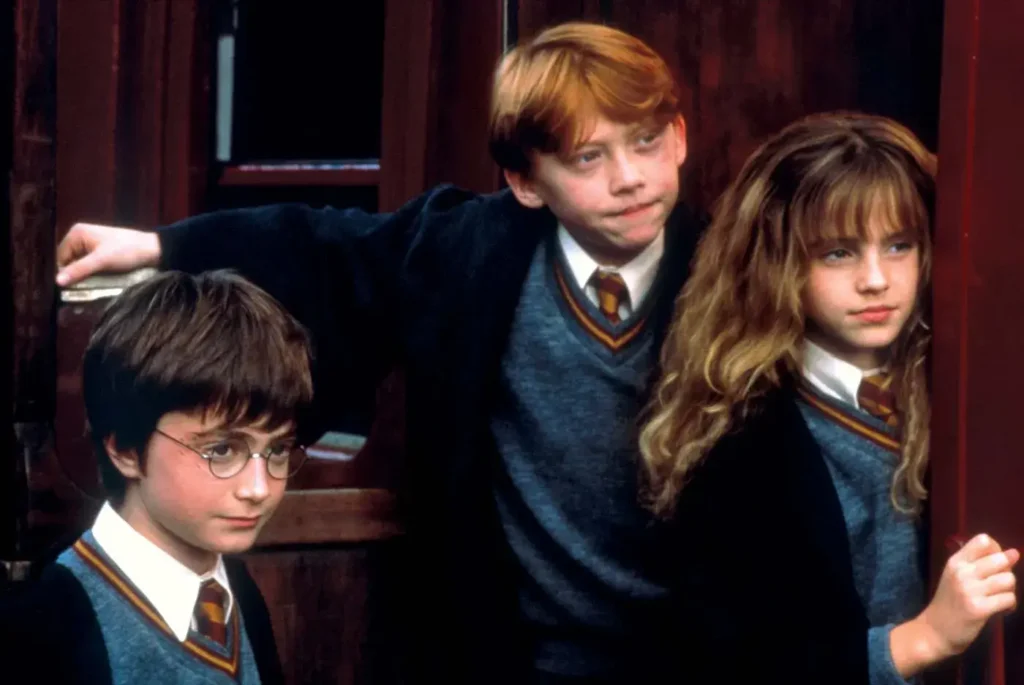
The Harry Potter franchise is more than a series of films—it’s a cultural touchstone that defined a generation.
From its humble beginnings as a book series by J.K. Rowling to its meteoric rise as a global phenomenon, Harry Potter remains a beloved piece of cinematic history.
The Cultural Phenomenon of the Books and Movies
The Harry Potter saga began with the publication of Harry Potter and the Philosopher’s Stone in 1997.
By the time the first film premiered in 2001, the books had already built a massive fanbase.
The films brought Rowling’s magical world to life, introducing audiences to Harry, Hermione, and Ron as they navigated the trials of Hogwarts School of Witchcraft and Wizardry.
Immersive World-Building at Hogwarts and Beyond
What set Harry Potter apart was its rich, immersive world.
From the moving staircases of Hogwarts to the bustling streets of Diagon Alley, every detail invited audiences to lose themselves in the magic.
Themes of friendship, bravery, and the battle between good and evil resonated with viewers of all ages.
The franchise also extended its reach with Fantastic Beasts spin-off films, the Wizarding World theme parks, and a Broadway play, Harry Potter and the Cursed Child.
This multifaceted approach has ensured the series’ relevance even years after the final movie’s release.
The legacy of Harry Potter is undeniable. It sparked a new wave of young adult fantasy adaptations and solidified its place as one of the most cherished franchises in both literary and cinematic history.
2.5. James Bond: The Timeless Spy Franchise
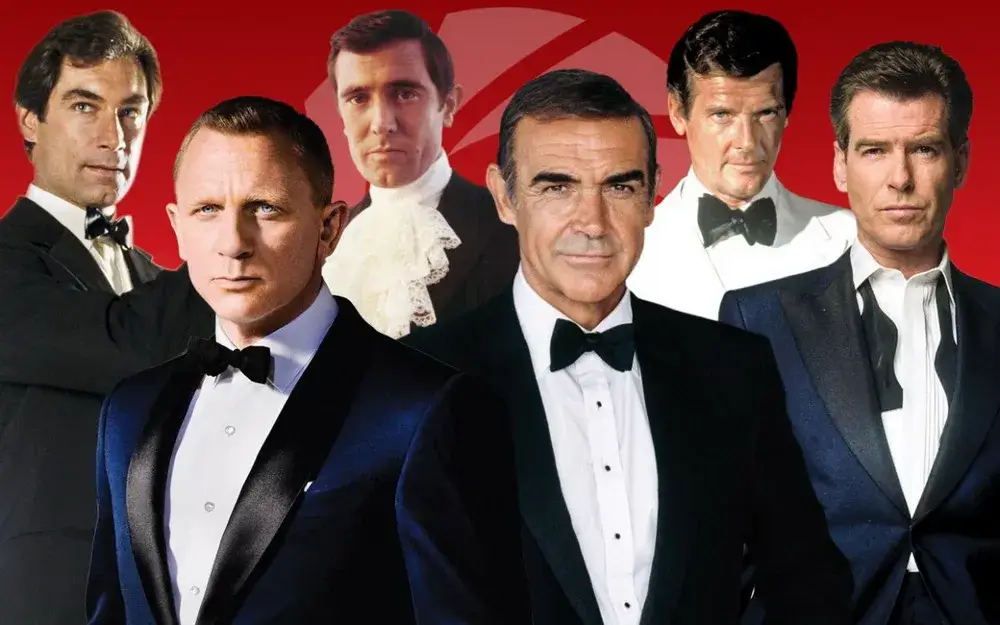
The James Bond franchise stands as one of the longest-running and most iconic movie series in cinematic history, spanning over six decades.
With its suave protagonist, thrilling action, and ever-evolving storytelling, Bond has remained a cultural phenomenon that continues to captivate audiences worldwide.
Longevity and Reinvention Through the Decades
Since the release of Dr. No in 1962, James Bond has been a constant presence on the big screen.
The franchise’s longevity can be attributed to its ability to reinvent itself with each new era, adapting to cultural trends and audience expectations.
From Sean Connery’s classic portrayal to Daniel Craig’s gritty interpretation, each Bond actor has brought something unique to the role, ensuring the character remains fresh and relevant.
Evolution of Storytelling and Staying Relevant
The James Bond films have also evolved in their approach to storytelling.
Early films leaned into glamorous espionage and escapism, while modern entries like Casino Royale and Skyfall explored deeper emotional arcs and complex narratives.
Themes of loyalty, betrayal, and global threats have kept the series grounded, while the iconic gadgets, exotic locations, and high-stakes missions continue to thrill fans.
Bond’s enduring appeal lies in its perfect blend of tradition and innovation, making it a franchise that truly stands the test of time.
2.6. The Fast & Furious Saga: Redefining Action and Family
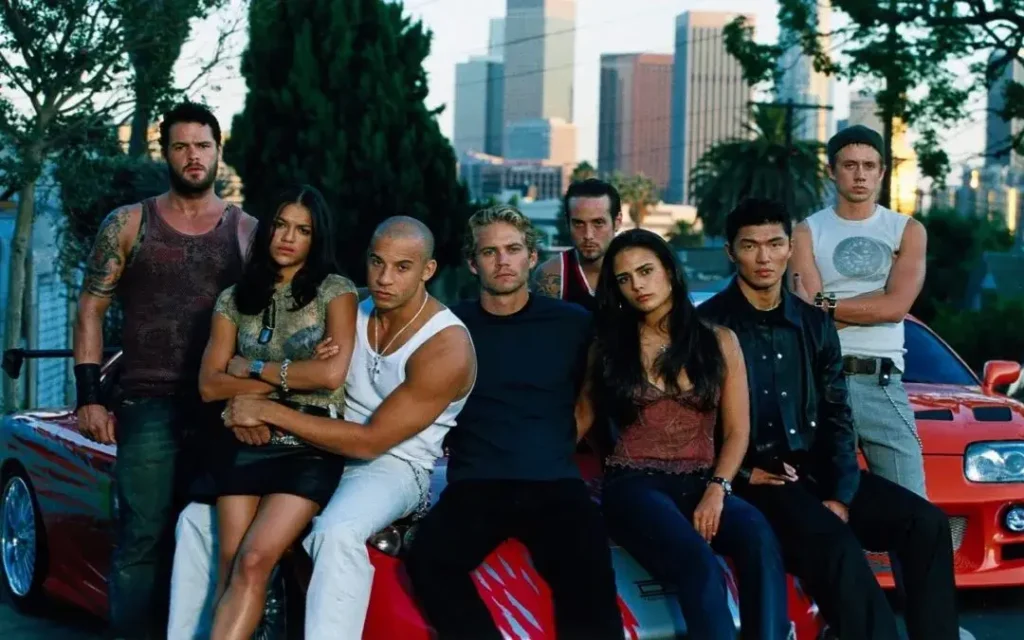
Few franchises have transformed as dramatically as the Fast & Furious saga.
What began as a niche street-racing series has evolved into a global action juggernaut that emphasizes thrilling stunts, outrageous heists, and the importance of family.
From Street Racing to Global Heists
The first Fast & Furious film (2001) introduced audiences to the underground world of street racing, led by Dominic Toretto (Vin Diesel) and Brian O’Conner (Paul Walker).
Over time, the franchise shifted gears, embracing larger-than-life action sequences and international espionage.
By Fast Five (2011), the series had cemented its reputation for delivering jaw-dropping stunts, like dragging a massive vault through the streets of Rio de Janeiro.
Appeal to Diverse Audiences Worldwide
One of the franchise’s standout features is its inclusivity. With a diverse cast representing various cultures and backgrounds, Fast & Furious resonates with a global audience.
Its emphasis on family—both biological and chosen—strikes a universal chord, while its mix of heart-pounding action and heartfelt moments keeps fans coming back for more.
As the saga races toward its conclusion with Fast X, its legacy as a franchise that redefined modern action cinema remains undisputed.
2.7. The Dark Knight Trilogy: Redefining Superhero Cinema
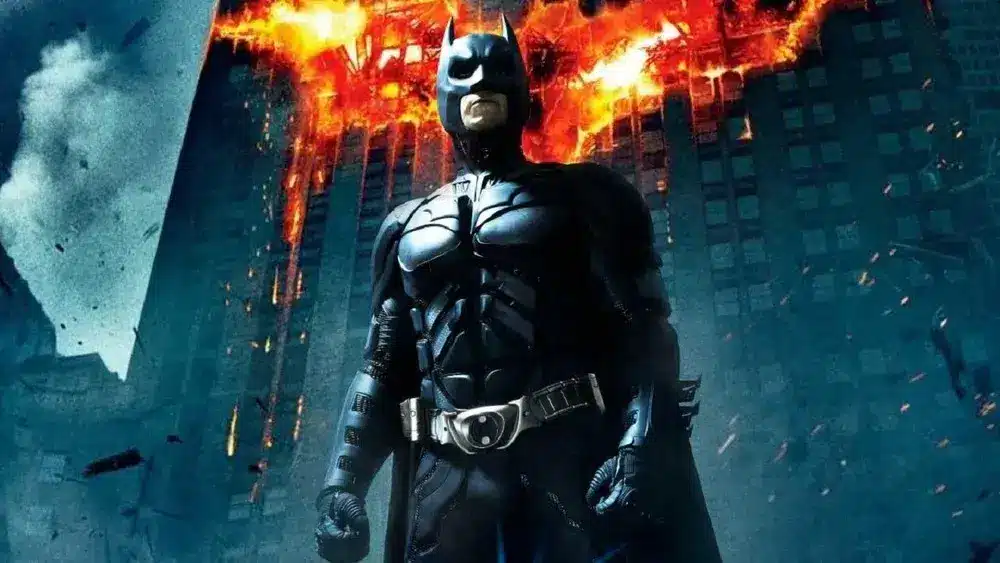
Christopher Nolan’s The Dark Knight Trilogy is often hailed as the gold standard for superhero films, combining grounded storytelling with profound themes and unparalleled performances.
Christopher Nolan’s Realistic Take on Batman
Nolan’s trilogy, beginning with Batman Begins (2005), reimagined the Caped Crusader as a deeply human character grappling with fear, morality, and justice.
By the time The Dark Knight (2008) hit theaters, audiences were captivated by Heath Ledger’s chilling portrayal of the Joker and the film’s exploration of chaos versus order.
The trilogy concluded with The Dark Knight Rises (2012), delivering an emotionally satisfying and thematically rich ending.
Influence on Serious Superhero Storytelling
The trilogy’s success proved that superhero films could be both commercially viable and critically acclaimed.
Its darker tone, layered characters, and thought-provoking narratives inspired a wave of similar films, including Logan and Joker.
Nolan’s influence can be felt across the superhero genre, as filmmakers continue to explore the balance between spectacle and substance.
2.8. The Matrix: Redefining Sci-Fi and Action
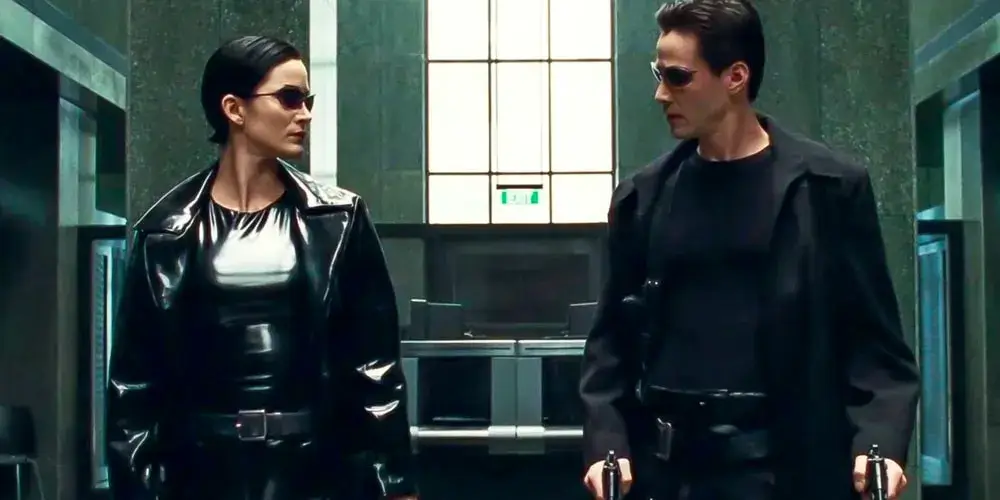
When The Matrix premiered in 1999, it revolutionized not just sci-fi but the entire film industry.
Its unique blend of cutting-edge technology, philosophical depth, and jaw-dropping action redefined what was possible in cinema.
Revolutionary Special Effects Like “Bullet Time”
The Matrix franchise introduced groundbreaking visual effects, most famously the “bullet time” sequence that showcased Neo dodging bullets in slow motion.
These innovative techniques set new standards for action filmmaking, influencing countless movies and video games.
Exploration of Deep Philosophical Themes
At its core, The Matrix delves into profound questions about reality, free will, and the nature of existence.
These themes, paired with iconic lines like “There is no spoon,” captivated audiences and sparked endless debates.
The Wachowskis’ creation remains a cultural touchstone, blending intellectual depth with explosive entertainment in a way few films have matched.
2.9. Pixar’s Animated Franchises: Beyond Kids’ Films
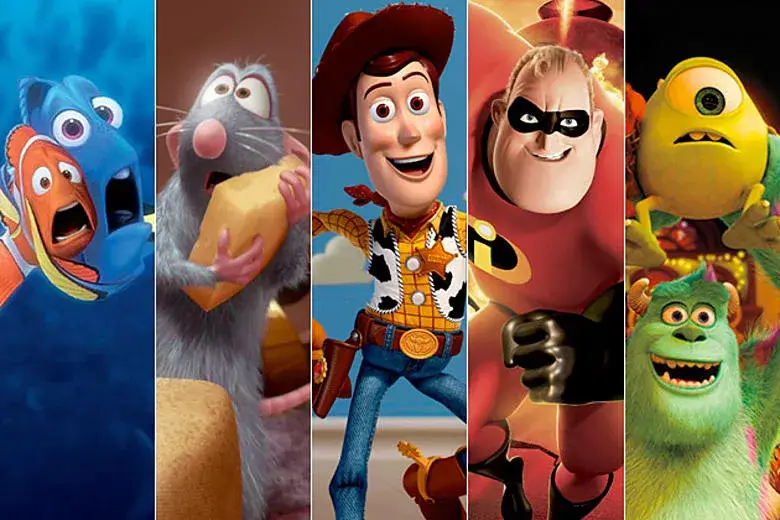
Pixar has consistently demonstrated that animated films can resonate with audiences of all ages, delivering heartfelt stories that transcend traditional notions of “kids’ movies.”
Toy Story, Cars, and Other Pixar Gems
From the groundbreaking Toy Story (1995) to the adrenaline-fueled Cars franchise, Pixar has created beloved worlds filled with unforgettable characters.
Each film blends humor, emotion, and stunning animation to craft experiences that stay with audiences long after the credits roll.
Contribution to Emotional Storytelling and Family Entertainment
Pixar’s ability to tackle complex emotions and themes—like loss in Up or identity in Inside Out—sets it apart.
These stories connect with children and adults alike, making Pixar a powerhouse of storytelling that appeals to the entire family.
2.10. The Star Trek Universe: Boldly Going Where No One Has Gone Before
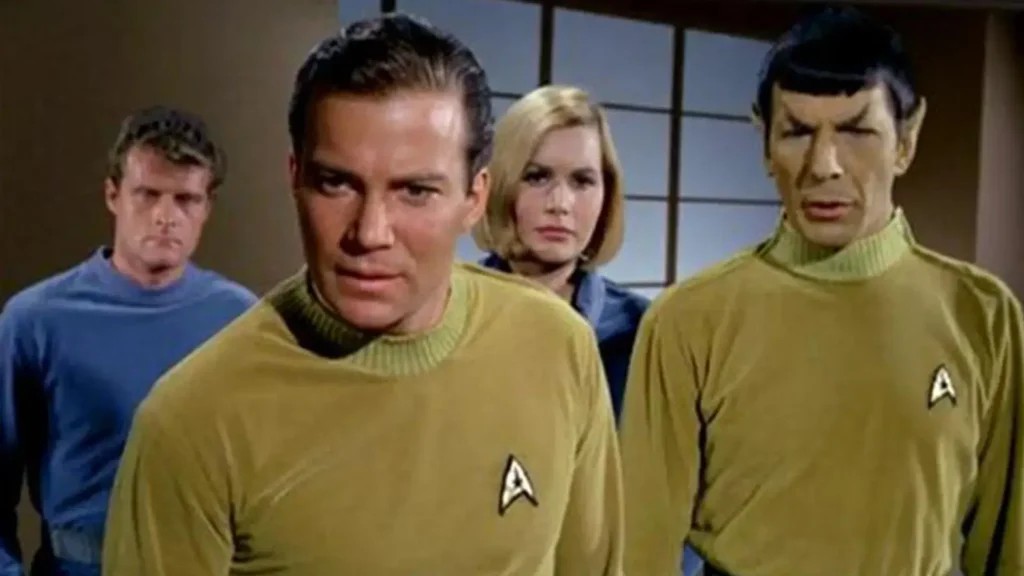
Star Trek isn’t just a franchise—it’s a cultural phenomenon that has shaped sci-fi storytelling and inspired generations of fans.
Exploration of Social Issues Through Sci-Fi
From its inception in 1966, Star Trek used futuristic settings to explore contemporary social issues, including racism, war, and equality.
Episodes like “The Trouble with Tribbles” and “The Measure of a Man” combined entertainment with thought-provoking commentary, a hallmark of the series.
Cult Status and Dedicated Fanbase
The Star Trek universe spans multiple series, films, and spin-offs, each building on the legacy of exploration and innovation.
Its passionate fanbase, affectionately known as Trekkies, has kept the franchise alive and thriving for over five decades.
Whether through its iconic starships, diverse crew, or commitment to optimism, Star Trek continues to boldly go where no franchise has gone before.
3. Key Themes Across Iconic Franchises
As we delve into the elements that define the most successful movie franchises, several recurring themes stand out.
These factors are not only crucial for creating unforgettable cinematic experiences but also for building fan loyalty and ensuring long-term cultural relevance.
World-Building: Crafting Immersive Universes
One of the defining features of iconic franchises is their ability to create richly detailed worlds that transport audiences to entirely new realms.
Whether it’s the galaxy-spanning conflicts of Star Wars, the interconnected superhero arcs of the Marvel Cinematic Universe, or the spellbinding halls of Hogwarts in Harry Potter, world-building is essential for captivating audiences.
These franchises go beyond storytelling—they construct ecosystems that fans can explore through movies, spin-offs, games, and merchandise.
Immersive universes not only draw viewers into the narrative but also encourage a deeper connection to the characters and lore, making audiences feel like participants in the adventure rather than just passive observers.
For nerd culture, this level of engagement is particularly meaningful.
Fans often search for terms like “expanded universe,” “hidden details in Marvel movies,” or “Harry Potter timeline explained” on Google and YouTube, showing their hunger to dive deeper into these fictional worlds.
Cultural Impact: Iconic Moments That Reshape Genres
From memorable one-liners to groundbreaking innovations, movie franchises have the power to leave a lasting mark on popular culture.
Consider The Matrix, which introduced “bullet time” and forever changed how action scenes are filmed, or Star Wars, whose iconic line “May the Force be with you” has become a cultural mantra.
Franchises like The Lord of the Rings set new standards for epic storytelling, while The Dark Knight Trilogy redefined the superhero genre with its gritty, realistic tone.
These cultural touchstones resonate far beyond the movie theater, influencing fashion, language, and even philosophy.
Longevity: The Secret to Enduring Success
Why do some franchises stand the test of time while others fade into obscurity?
The answer lies in their ability to adapt while staying true to their core themes.
Take James Bond, which has thrived for over six decades by evolving with cultural shifts and introducing new interpretations of its central character.
Similarly, franchises like Star Trek have maintained their relevance by expanding their universe through spin-offs, reboots, and a continuous exploration of contemporary issues.
Longevity also hinges on fostering a dedicated fanbase. Franchises that actively engage with their audiences—through conventions, social media, or interactive content—build a sense of community that ensures ongoing support.
Fans in the U.S., for instance, frequently search for “best James Bond movies ranked” or “Star Trek shows in order,” reflecting their sustained interest and connection to these enduring sagas.
In summary, the most iconic movie franchises succeed because they master world-building, create unforgettable cultural moments, and continually reinvent themselves to stay relevant.
These key themes not only define the franchises but also explain their deep resonance with the nerd community, making them more than just films—they become a shared cultural experience.
4. Honorable Mentions: Other Influential Franchises
While some movie franchises have undoubtedly defined cinema, there are numerous others that have made significant cultural impacts and shaped the modern film industry.
These franchises may not have dominated in the same way as Star Wars or the Marvel Cinematic Universe, but their influence is undeniable.
Let’s dive into a few honorable mentions that have earned their place in cinematic history.
Jurassic Park: The Legacy of Dinosaurs and Innovation
When Jurassic Park first roared into theaters in 1993, it forever changed the landscape of filmmaking.
Directed by Steven Spielberg, this franchise combined groundbreaking special effects with a gripping tale of human hubris and prehistoric terror.
Its impact was felt across both the adventure and sci-fi genres, with cutting-edge CGI bringing dinosaurs to life in a way never seen before.
Over the years, Jurassic Park has evolved into a global phenomenon, spawning sequels, spin-offs, and theme park attractions.
The Hunger Games: A Dystopian Revolution
The Hunger Games franchise, based on Suzanne Collins’ books, took the world by storm when it debuted in 2012.
It introduced us to the dystopian world of Panem and the fierce Katniss Everdeen, a heroine who became an iconic symbol of rebellion and survival.
The success of the series extended far beyond the movies, influencing the rise of young adult dystopian fiction.
With themes of political struggle, survival, and resistance, The Hunger Games resonated deeply with audiences, especially those who love thought-provoking stories.
It became a cultural touchstone, sparking debates and discussions on topics like government control and inequality.
Pirates of the Caribbean: Swashbuckling Adventure and Mythology
No discussion of influential movie franchises would be complete without Pirates of the Caribbean.
What began as a theme park attraction became one of the most successful adventure franchises of all time, with its first film, The Curse of the Black Pearl, launching in 2003.
The iconic portrayal of Captain Jack Sparrow by Johnny Depp, along with the unforgettable mix of swashbuckling action and supernatural lore, helped make the series a fan favorite.
With a blend of comedy, action, and adventure, Pirates of the Caribbean became more than just a series of films—it created a cultural imprint with memorable catchphrases like “But why is the rum gone?” and compelling characters who have become part of the cinematic lexicon.
In Conclusion
While Jurassic Park, The Hunger Games, and Pirates of the Caribbean might not have reached the same global heights as some of the most dominant franchises in cinema, they each brought something unique to the table.
Whether it was pioneering visual effects, a new take on dystopian storytelling, or creating a beloved anti-hero in Jack Sparrow, these franchises have left an indelible mark on the film industry and continue to resonate with fans around the world.
For nerds searching for more insights, theories, or rankings, these honorable mentions offer a treasure trove of content, making them just as deserving of a place in the conversation about the most influential movie franchises of all time.
5. Why Movie Franchises Resonate With Fans
Movie franchises have a unique ability to connect with audiences on a deep emotional level.
Whether it’s through unforgettable characters, thrilling adventures, or shared cultural moments, these franchises become more than just films—they turn into meaningful parts of fans’ lives.
For the nerd community, especially those passionate about superheroes, sci-fi, and fantasy, these connections go beyond the screen.
But what is it about these iconic franchises that makes them so enduring and powerful?
Let’s explore the key reasons why movie franchises continue to resonate with fans.
Emotional Connection to Characters and Stories
At the heart of every successful franchise are characters that feel like old friends.
From the brooding intensity of Batman to the optimism of Captain America, fans become emotionally invested in these characters’ journeys.
These fictional heroes and villains grow, evolve, and face challenges that mirror the struggles people experience in real life—making them more relatable and engaging.
For example, fans of the Star Wars saga can relate to Luke Skywalker’s transformation from a hopeful farm boy to a powerful Jedi.
Likewise, the Marvel Cinematic Universe (MCU) explores complex character arcs that show vulnerability, growth, and redemption.
The emotional investment that fans build with these characters creates a sense of attachment, making the franchise feel like a part of their own personal story.
As people search for “why we love superhero movies” or “emotional moments in Marvel,” it’s clear that the emotional connections to these characters are a major reason behind their widespread appeal.
The Power of Nostalgia and Collective Experiences
Nostalgia plays a massive role in why movie franchises have such a strong emotional pull on fans.
Many nerds grew up with these franchises, and the memories of watching Star Wars, Harry Potter, or The Lord of the Rings for the first time are cherished experiences that continue to shape their relationship with these films.
These franchises become more than just entertainment; they become cultural touchstones tied to moments in a fan’s life.
Additionally, movie franchises often create collective experiences. Midnight movie releases, fan conventions, and social media discussions allow fans to connect with others who share their love for these stories.
For example, the Avengers: Endgame premiere was a global event, with fans lining up for hours to witness the epic conclusion of the Infinity Saga.
For nerds who search for “best Marvel movie premieres” or “Avengers fan theories,” it’s clear that the shared experience of enjoying these franchises together strengthens their cultural impact.
These moments of excitement and camaraderie create lasting memories that keep fans coming back for more.
How Franchises Adapt to Modern Audiences
Another key reason movie franchises continue to resonate with fans is their ability to adapt and evolve over time.
The world of cinema is constantly changing, and franchises that remain relevant do so by embracing new trends, technologies, and audience expectations.
Whether it’s incorporating modern special effects, exploring new genres, or diversifying the cast, successful franchises know how to stay fresh.
Take the MCU, for example: while the early films were action-packed blockbusters, later entries have explored complex themes, from political intrigue in Captain America: The Winter Soldier to deep cosmic questions in Guardians of the Galaxy.
These adaptations reflect the changing tastes and interests of modern audiences, which helps maintain the franchise’s cultural significance.
Similarly, Star Wars has evolved from a space opera to a multi-faceted storytelling universe, including animated series, spin-off films, and new television shows.
The rise of streaming platforms has allowed franchises like The Witcher and Stranger Things to reach new audiences and keep the storytelling going strong.
For fans searching for “how MCU stays relevant” or “Star Wars evolution,” it’s clear that these franchises succeed because they evolve with their audience.
Whether it’s through embracing modern sensibilities or pushing the boundaries of technology, these franchises adapt to remain at the forefront of cinematic culture.
In Conclusion
Movie franchises resonate with fans because they offer a mix of emotional depth, nostalgic value, and adaptability to the times.
As fans connect with beloved characters, relive shared experiences, and watch franchises evolve to reflect contemporary culture, they form lifelong attachments to these cinematic universes.
For the nerd audience, particularly in the U.S., these franchises serve as more than just films—they are part of their identity and a continual source of joy, excitement, and community.
Conclusion: The Enduring Power of Movie Franchises
In conclusion, movie franchises have not only redefined the cinema landscape but have become a pivotal part of modern culture.
From the revolutionary storytelling of Star Wars to the interconnected universe of the MCU, these franchises have shaped the way audiences experience films.
Whether it’s the immersive worlds, beloved characters, or the emotional connections they foster, these cinematic universes continue to captivate and engage fans worldwide.
Movie franchises transcend mere entertainment, becoming cultural touchstones and enduring legacies that influence the direction of the film industry.
As we’ve explored, it’s clear that the secret to their lasting success lies in their ability to evolve with the times while still retaining the qualities that fans love.
The nostalgia, the shared experiences, and the characters that fans grow with are just a few of the reasons why franchises like Harry Potter, The Dark Knight Trilogy, and The Lord of the Rings have maintained their cultural relevance.
The way they adapt to modern sensibilities ensures that they continue to resonate with audiences, both old and new.
Now, we want to hear from you! What do you think makes a movie franchise truly great?
Which iconic movie series do you believe has had the most impact on the film industry?
Share your thoughts with us in the comments below, and let’s discuss the franchises that have left a lasting mark on your life.
Whether it’s superheroes, fantasy epics, or timeless classics, your favorite franchise might just inspire the next big cultural phenomenon.
Dive into the conversation!
Share your favorite movie franchises or let us know what makes a great movie series in your opinion.
Join the discussion and connect with other fans who are just as passionate about cinema as you are!
Follow our social media to receive content as soon as it is released.👇
